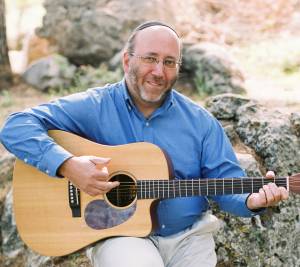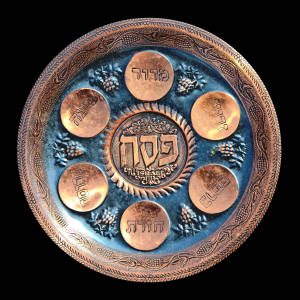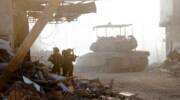No one lives forever, but the values and spiritual gifts we give our children will exist way beyond our physical lifetimes. It is an investment in our eternity.
So here they are–ten short thoughts that will hopefully make your Seder more meaningful. They are meant to be conversation starters. I would suggest reading them out loud at different intervals at your Seder and discuss them with everyone present. Expand upon them and add your own thoughts. The Seder is supposed to be an experiential journey, not one where you sit on the sidelines. So get involved and have a fun and inspirational experience.
The four cups of wine we drink at the Seder represent the four expressions of redemption found in the Bible (Exodus 6:6-7). There are four expressions of redemption as opposed to one because the redemption happened in stages. When you need personal redemption to get out of a particular situation or change a habit or addiction, it is not simple and does not happen all at once. It can require enormous effort and small steps. As you move from one stage to the next, one day you will look back and find that you have left your personal Egypt behind and made it to the Promised Land. With persistence and perseverance it can be done. The key is to not give up.
Towards the beginning of the Seder we wash our hands. When you want to improve your spiritual life, it is a good idea to begin by washing and cleaning first and then adding positive things to your spiritual life. “Turn from evil and do good” (Psalms 34:15). Leaving behind our sins, negative habits, bad character traits is the first step. Then you will have a foundation that can support all the amazing things you want to achieve in your relationship with God and people.
At the Seder we eat a green vegetable. One of the ideas is that it reminds us of the spring which is a Biblical reference for the holiday of Passover which occurred in the spring (Deuteronomy 16:1). This reminds us that after a long dark winter, spring is upon us and new growth abounds. In the dark moments of life when we are suffering, we must remember that spring follows winter and once again all will be green and light. Confront your challenges with faith and know that your faith will bring you to great joy.
Hope for a Broken World: Our Children
At the Seder we break one of the matzahs (called Yachatz in Hebrew) and traditionally it is hidden away somewhere in order to keep the children interested and awake until the end. Later the children will try to find the broken piece of the matzah and return it when just in time to be eaten towards the end of the Seder. When you look at the world it seems very broken. So much evil and wickedness can be found around the globe. It can be depressing. The world seems so broken like the matzah. Who will restore it? It is the children that will return the broken piece. It is the children that have such optimism and can restore the world to God’s kingdom.
We tell the story of the Exodus in question and answer form. We ask four questions at the beginning, which results in a long answer explaining the significance of Passover. Curiosity and the seeking of answers is what leads to spiritual growth. When Moses saw the burning bush he wondered why it was not consumed. Wonder is the beginning of our relationship with God. We marvel at his amazing world and ask ourselves “…Who created these?” (Isaiah 40:26) The answer of course is God. Questions lead to deeper thinking. We should not be afraid to question. We should be afraid when we think we already know all the answers.
Bread of Affliction or Bread of Freedom?
The matzah is simultaneously known as the bread of affliction and the bread of freedom. Well, which is it? It is both. Matzah is what the Egyptians fed the Israelites when they were enslaved and also was what the Israelites took with them when they were leaving Egypt because the dough did not have time to rise. In life, sometimes our greatest setbacks can lead to our greatest comebacks. Failure is not failure—it is just a step towards success. Redemption is often found within the very struggle itself.
We eat a bitter herb to remember the bitterness of our enslavement in Egypt. When faced with a difficulty in life, even a tragedy, it is critical to “experience” the pain and not to avoid it. Ignoring the pain will only make it worse in the end and nothing will be learned. It will lead to more suffering. The quality of your mourning will, in large measure, determine the quality of your life post mourning. You need to go through the suffering and not around it. With the help and love of others we can embrace life’s challenges and emerge from them stronger and more sensitive people.
At the Seder we recline as free people when we drink the four cups of wine and eat the matzah. It is important in life to celebrate our achievements and accomplishments. It is quite easy to get caught up in the challenges of life and forget to take time out to acknowledge what we have achieved. We must thank all the people that support and help us and we certainly must also thank God. At the end of the day, all comes from Him.
Investment in Eternity
Children play a key role at the Seder. History does not mean only focusing on the past. It also means building a future, creating history. No one lives forever but the values and spiritual gifts we give our children will exist way beyond our physical lifetimes. It is an investment in our eternity so put as much in to it as you can. It will pay great dividends! It will allow you to live forever! “You who cling to the LORD your God, are all alive today” (Deuteronomy 4:4)
We try to finish the Seder by midnight. It is important to realize that some things in life have a beginning and an end. Many people do not know how to say “good enough” and get caught up in pursuing perfection. They cannot stop and let go. You have to know when to go to sleep, when to put aside what you are doing and move on. Spending endless hours at work and precious few minutes with the ones we love is a plague of this generation. The Seder comes to an end. We too must learn when enough is enough. Not easy, but worthwhile.























